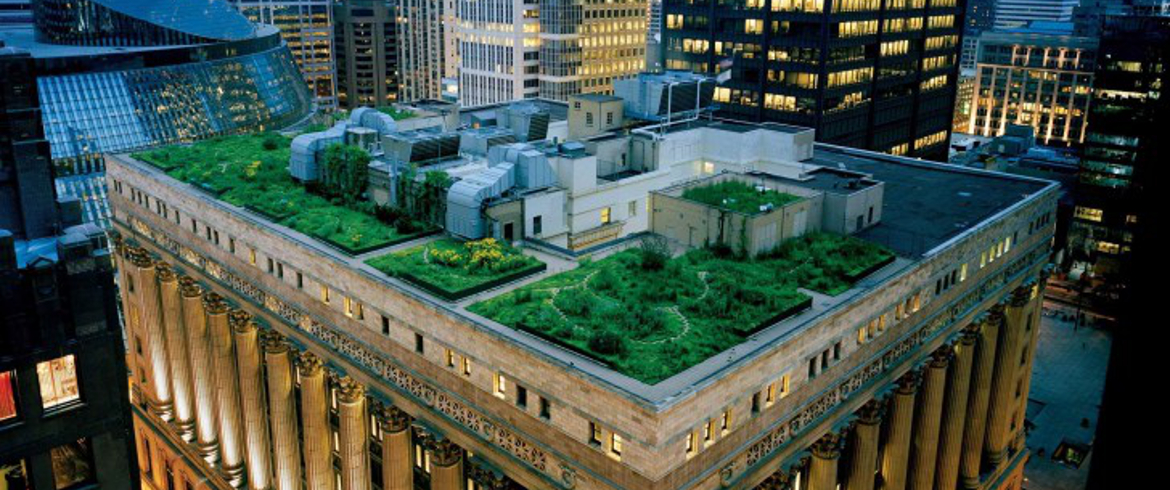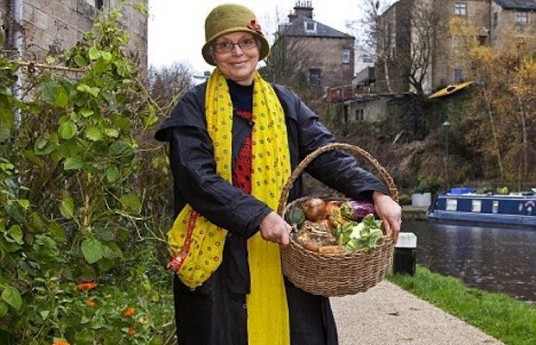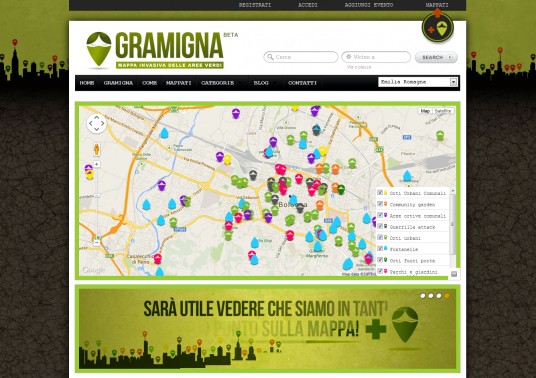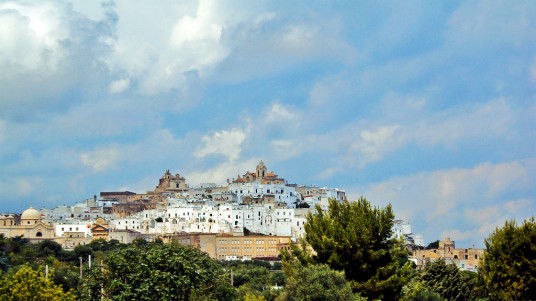Would you like to pick fruits and vegetables walking up and down in the parks of your city, instead of having to buy them at the grocery store, without knowing their origin ? From England to Italy, take a look at this edible cities, in which you can grow and eat local!
In Todmorden, a small English town with less than 500 inhabitants, you can stop and enjoy the products of a vegetable “community” garden.
This edible town self-produce enough for the sustenance of the inhabitants, who, in a virtuous circle, are involved in care activities and implementation of the common areas.
A real treat for the eyes and soul!
Such a paradise for vegetarians, where you can find potatoes and vegetables of all kinds and varieties, but also fruits and herbs such as raspberries, strawberries, apricots, rosemary and basil.
This idea arises in the context of a project designed to make the town self-sufficient in terms of production of fruits and vegetables. Furthemore, eating local has a lot of benefits: on the community, environmental and economic.
Let’s enjoy this British gem as a unique experience: food and fruits are cultivated a little everywhere in this small capital city of the green, orchards, flower beds and even small crops at the cemetery.
Now the question is: “and if someone picks up more than he could, speculating about the goodness of spirit of the neophytes farmers?”
Well, it seems that this is not going to happen here: the spiritual path and close solidarity between these extraordinary citizens is in itself sufficient to ensure the fairness and good will of all.
Many English towns, about 21, are drawing inspiration for creating green social areas, even many European capitals are moving in this direction, why not to hope for a different and better future?
Edible cities, green living and farm-to-table cooking in Italy
Bologna , meanwhile , has created a futuristic interactive map, Gramigna map; it can be used for the location of urban sites where you can find vegetable gardens.
An intelligent and interesting way to make people understand the advantages of marvelous fruits and vegetables.
This italian city is working concretely on the innovation of urban gardens, by the project “Bologna City of Gardens” that was created to “support the growing needs of the citizens to be actively involved in urban horticulture, self-production, socialization and participation in the perspective of cultural and environmental sustainability.”
Users of urban gardens are mostly families, young people and foreigners who choose ecology as a valid remedy to the increasing of globalization.
Bologna is not the only example of this phenomenon, many other cities are involved in the direct cultivation of fruits and vegetable. According to the latest data, released by “Italian Nostra”, urban gardens occupy an area of over 500,000 square meters, but it is estimated that, in fact, they are many more.
In smaller Italians towns we can find other interesting and creative examples.
Perugia with its 5,000 square meters of vegetables gardens, Foligno, with Villa Jacobelli park, an historic building with a urban garden of 2,000 meters, Sant’Anatolia Narco with a garden of 4,500 square meters, Ostuni, which intends to redevelop the entire city walls through the creation of typical urban gardens terraced, for a total of 27,000 square meters. The terraced gardens of Ostuni, will be used, in part, as a public park and managed by the government, associations and schools.
The realization of “vegetables and fruit garden” can improve the quality of the air we breathe, seize land from illegal building and speculation, enhancing the landscape through agricultural activities. In addition it enables people to eat in a healthy and genuine way, improving urban aesthetic and encouraging the development of ethic and solidarity .
The innovative and sustainable management of green spaces in the city becomes a real ecological choice of the citizen, in order to enhance tourism: urban food gardens can be, especially in small towns, a valid and effective tool promote local food and traditions. This is an extraordinary and unique attitude!
Why not to try? Let’s give birth to a tiny green pearl on an area to be redeveloped or on a desolate terrace. The idea is to dig, water and cultivate together, because the very meaning of food garden is, first of all, sharing.
Share with us your experience of urban vegetable garden!



